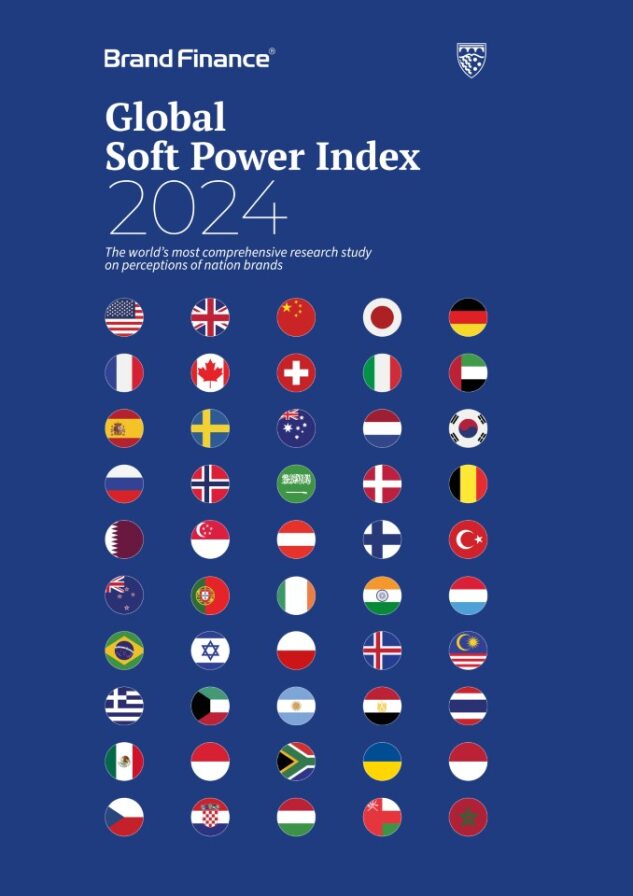This article was originally published in the Global Soft Power Index 2024

Leading Expert on
Foreign Direct Investment
& Business Editor
While often associated with cultural rather than business influence, Soft Power plays a pivotal, and increasingly clear, role in promoting trade and attracting foreign investment. Unsurprisingly, countries that perform well in the Global Soft Power Index also top foreign direct investment (FDI) league tables and are among the world’s most powerful economies.
This year’s Index highlights the growing importance of Business & Trade attributes at a time of global economic challenges and political instability, with ‘strong and stable economy’ being revealed as by far the strongest driver of both Influence and Reputation. There is something of a virtuous circle, with strong Soft Power helping boost trade, FDI, and economic clout, while being economically successful and having healthy trade and investment links with the rest of the world also enhancing Soft Power. (Unfortunately, it can be a vicious circle for countries caught in a loop of poor Soft Power and low levels of inward investment and exports).
There are several reasons for Soft Power’s relevance to trade and investment. One of the fundamental aspects of Soft Power lies in building trust and establishing a positive reputation on the world stage. A country with a strong and positive image is more likely to attract foreign partners, investors, and consumers. Cultural appeal, international cooperation, and responsible global leadership contribute to building trust, which is a crucial factor for investors evaluating potential destinations for their capital.
Soft Power can also increase a country's influence over global consumer preferences. If a country's cultural products, such as films, music, or literature, have a strong international appeal, it can create a sense of familiarity and interest among consumers in other countries. This cultural influence can make it easier for businesses from that country to access foreign markets, ultimately attracting investors looking to capitalise on the popularity of the country's cultural exports.
Soft Power initiatives like educational exchange programs contribute to building strong people-to-people connections. When individuals have positive experiences with a country, whether through education, travel, or cultural interactions, they are more likely to develop a favourable view of that nation. These personal connections can influence investment decisions as individuals with positive perceptions may be more inclined to invest or recommend investment opportunities in that country.

Perceptions of political stability and of commitment to the rule of law also play a role. Countries that actively engage in global initiatives, uphold human rights, and demonstrate responsible leadership are often seen as more stable and attractive for long-term investments. Investors are more likely to commit capital to these countries, reducing the risk associated with their investments.
Soft Power also extends to a country's influence on global issues such as sustainability and environmental responsibility. Countries leading in these areas attract environmentally conscious investors looking to align their investments with sustainable practices. The commitment to addressing climate change and other global challenges can signal a forward-thinking and responsible approach, making the country an appealing destination for green investments while boosting its overall image.
Public diplomacy efforts play a crucial role in shaping how a country is perceived internationally. A well-crafted communications strategy can highlight a country’s economic achievements, technological advancements, and business-friendly policies. By effectively managing perceptions, a country can create an environment perceived as welcoming and supportive of foreign investment.
A country's Soft Power therefore has a profound impact on its economic prospects by influencing perceptions, building trust, and creating a positive environment for investors and trade partners. Investing in Soft Power is an investment in eventual economic development and growth.

